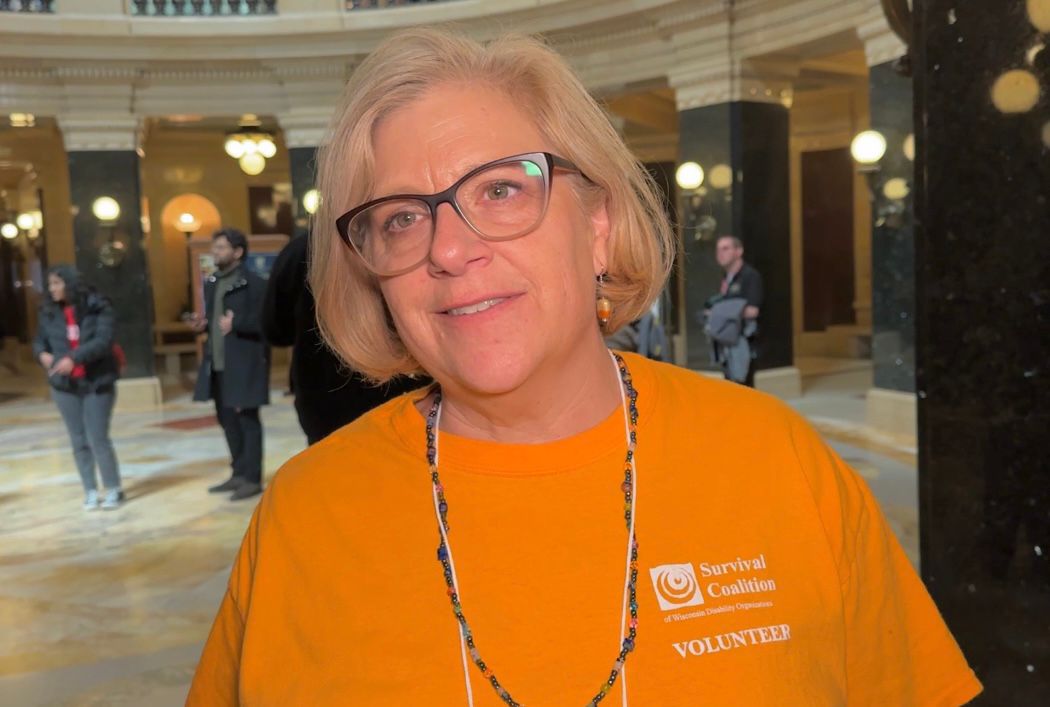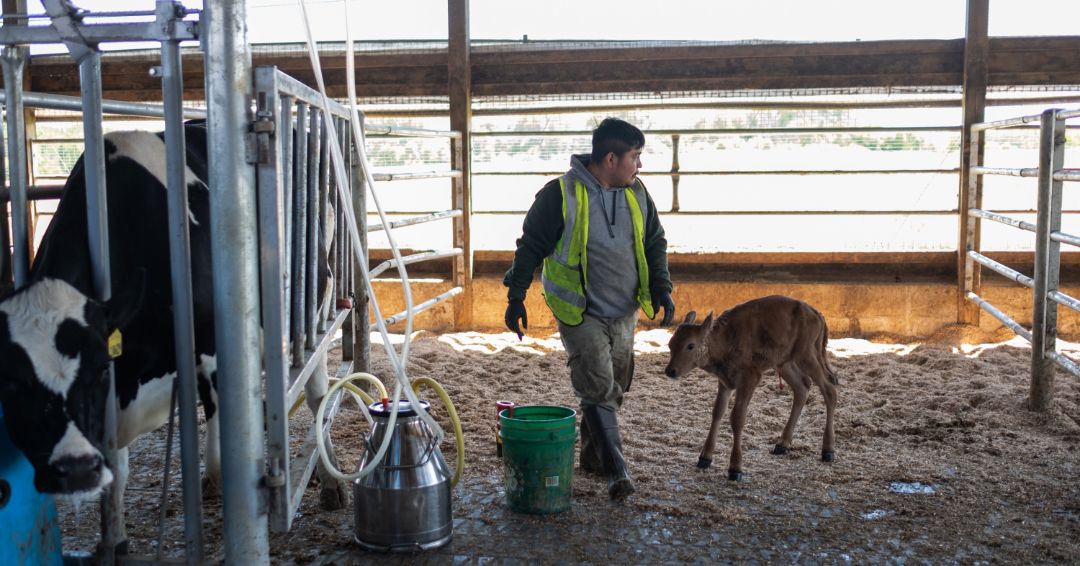MADISON, Wis. — Hundreds of people gathered in Madison, Wis., on Wednesday to rally for the Survival Coalition’s annual Disability Advocacy Day.
Advocates met up at the Monona Terrace before walking over to the Capitol together. People planned to talk to state legislators about the challenges children and adults with disabilities, older adults and their families face. Issues range from health and safety to living in their own homes and under-funded care services.

“We’re hearing a lot of people excited to be here, excited to have time to talk to their legislators about their needs for transportation, for school, for direct care work, for access even to simple things that lots of us think is simple — but you know, just getting to the dentist is not accessible to somebody who uses Medicaid,” said Patti Becker, co-chair of the Survival Coalition. “…People are excited to share their stories.”
Additionally, people were also advocating for voting rights, special education, mental health help and transportation support.
”New threats to voting rights are creating added barriers for people with disabilities to exercise their right to vote. We ask our policy makers to work with us to make our elections more accessible and inclusive — not more restrictive,” said Kit Kerschensteiner, co-chair of the Survival Coalition.

“Wisconsin’s average in-home direct care worker’s starting wage, at times, is 50% less than that of their peers beginning work at facilities, hospitals or institutions. These low community-based wages continue to fuel the community workforce crisis, increase waiting lists, bottleneck hospital discharge efforts, and make it almost impossible for remain at home,” added Becker.
According to the Centers for Disease Control and Prevention (CDC), 1,055,434 adults in Wisconsin have a disability. That’s 23% of adult Wisconsinites, or about 1 in 4 adults in the state.

The CDC reported that Wisconsinites with a disability were more likely to have depression, have obesity, smoke, have diabetes and have heart disease, when compared to their non-disabled peers.
According to the CDC, 10% of Wisconsinites have a mobility-related disability, while 11% have a cognition-related disability. The CDC said another 6% have an independent living-related disability and 5% have a hearing-related disability. Additionally, 2% have a vision-related disability and 3% have a self-care-related disability.
An estimated two out of seven families are impacted by disabilities, according to data from The Ability Center (TAC).
TAC said 4.3% of kids in southeastern Wisconsin alone reported having a disability — that’s 23,000 kids. TAC is a Wisconsin-based nonprofit that works to create “universal, inclusive and adaptive sports, fitness and recreation opportunities.”

“Aging family members are sacrificing their jobs, their health and their retirements to cover the gaps. If we want to keep people in their homes and communities where they want to be, Wisconsin needs to compensate home-based workers the same as those doing the same work in facilities,” said Beth Swedeen, co-chair of the Survival Coalition.
Aly Prouty - Digital Media Producer
Aly Prouty is a digital producer for Spectrum News 1 Wisconsin, Ohio and Kentucky. An award-winning, multimedia journalist, she holds an honors B.A. in journalism from Marquette University and an M.A. in journalism and media studies from The University of Alabama.









